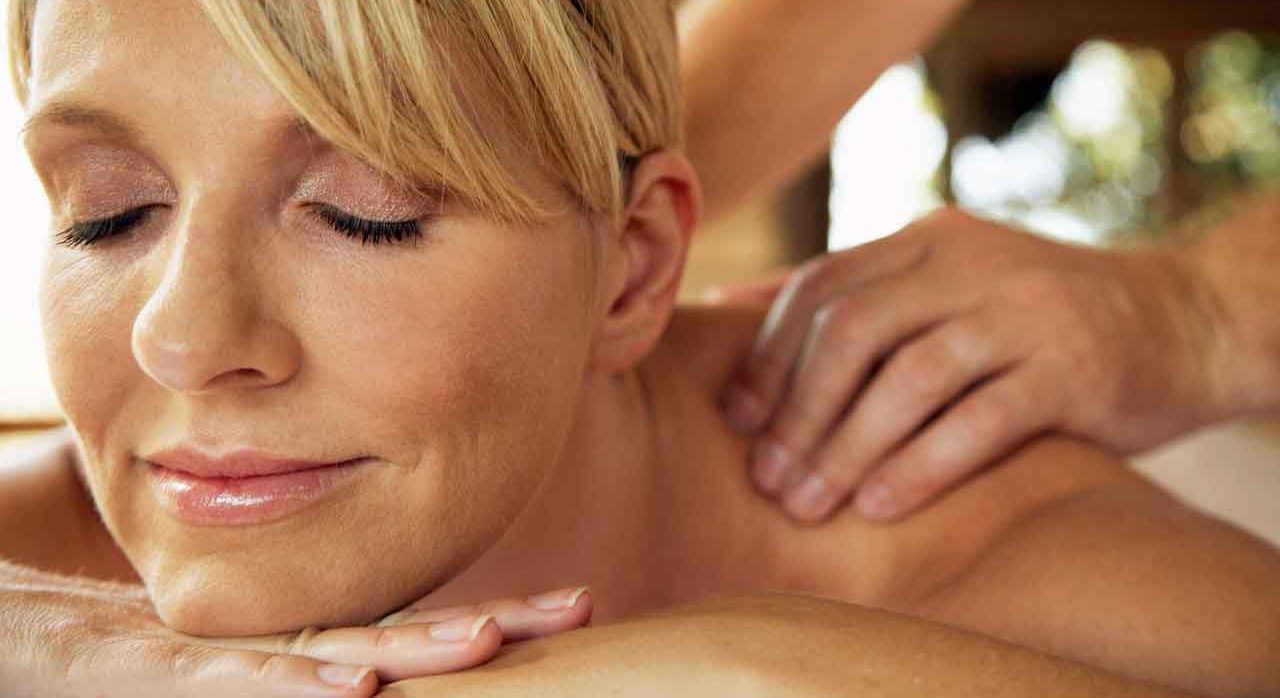Health Benefits of Massage

Studies find that muscle stimulation triggers cellular activity that heals and relieves pain. Learn about the health benefits of massage.
If you’ve had massage, you know it makes you feel good, but it also has proven health effects on pain and certain conditions or diseases.
Conservatively speaking, “there is scientific evidence that massage may help with back pain and may improve quality of life for people with depression, cancer, and HIV/AIDS,” according to the National Center for Complimentary and Integrative Health. (NCCIH).
YOU MIGHT ALSO LIKE: Tell Your Doctor What You’re Doing to Manage Pain
Health benefits of massage
The most obvious benefit, pain relief, is supported by NCCIH studies that concluded massage “may be useful” for chronic low-back pain, help with pain from osteoarthritis of the knee, and relieve pain in women in labor.
An NCCIH meta-analysis of 17 clinical trials also found massage may reduce depression. Brief twice-likely yoga and massage sessions for 12 weeks decreased depression, anxiety, and back and leg pain in pregnant women.
NCCIH says studies have also found massage can reduce your pain, boost relaxation, and improve mood in cancer patients, has helped with symptoms of fibromyalgia, improve the quality if life for people with HIV/AIDS, even improve blood glucose levels in people with diabetes.
Other benefits of massage may include boosting your immune system to fight off your winter colds and flu.
“Researchers working with patients with compromised immune systems have found massage therapy can improve how the immune system functions,” said Jeff Smoot, President of the American Massage Therapy Association (AMTA). “Those same benefits translate to people seeking to fight off the common cold, flu, and other seasonal illnesses.”
Other benefits of massage
The mechanism is apparently the activation of white blood cells that can fight viruses. A study group receiving Swedish massage had changes in lymphocytes, one of three subtypes of immune of white blood cells in the immune system.
Other studies have shown massage can have a positive effect on people who get the “winter blues” from cold and low light, particularly those with seasonal affective disorder, a major depressive disorder connected to seasonal patterns.
“As we approach the colder, darker months, massage therapy may be an effective method of deflecting common seasonal challenges,” Smoot says. “Massage benefits the way our bodies react to negative influences, whether that’s weather, anxieties, or disorders.”
Mostly, though, you’re probably looking for massage to relieve aches and pains from “weekend warrior” type exercise or activities that stretch your body beyond its usual level of capability.
One study found that massage accomplishes that by boosting the growth of new mitochondria in skeletal muscle, and helps to reduce inflammation. Researchers referenced genetic data of muscle biopsies taken from 11 young men's quadriceps after strenuous exercise sessions on a stationary bike that damaged muscle tissue.
One of the 11 men was chosen to have one of his legs massaged. Prior to the massage, biopsies had been taken of both legs, another was taken 10 minutes after the massage, and the third, 2.5 hours later.
"Our research showed that massage dampened the expression of inflammatory cytokines in the muscle cells and promoted biogenesis of mitochondria, which are the energy-producing units in the cells,” said study coauthor Simon Melov, PhD, a member of the Buck Institute faculty analyzed the tissue samples.
“There's general agreement that massage feels good; now we have a scientific basis for the experience."
These findings explain the enhanced healing of the muscle, another expert says, “but there is another aspect to exercise-induced trauma: the injury itself.”
“It turns out that massage of the injured muscle also helped reduce damage to the muscle fibers,” adds blogger Dov Michaeli MD, PhD, a retired professor at the University of California-San Francisco. “When tissue is injured the body responds with (therapeutic) inflammation.”
When you’re feeling sore and fatigued from over work or too much exercise, why not just take anti-inflammatory drugs such as ibuprofen?
“They can interfere with wound healing and actually delay your return to full activity,” Micheali says. “Second, they are not as pleasant and emotionally healing as a massage given by (someone) who knows what they are doing. This of course assumes that massage has an effect on your brain, and it does.”
Updated:
March 31, 2020
Reviewed By:
Christopher Nystuen, MD, MBA